No, that’s not a little mountain, but a big tree.
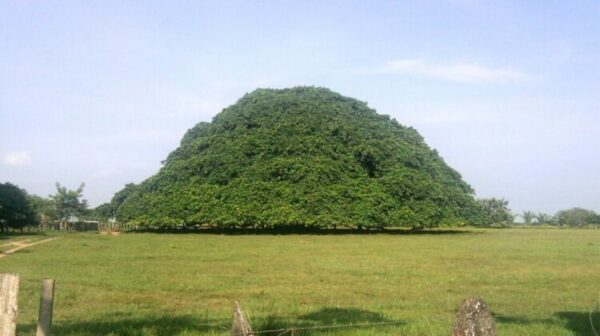
What’s the biggest tree in the world? General Sherman is certainly at the top of contenders, but then look at this.
In the depths of Colombia’s Caribbean region, there is a tree some mistakenly call ‘The Tree of Guacarí’, which was another enormous tree in the same area, rather similar in looks to the tree we are presenting now.
That tree, otherwise called the Samán of Guacarí, used to feature on Colombian 500 peso coins in the 90s. It was a Samanea saman, also sometimes known as a rain tree, and was cut down in 1989 as its thick branches began to detach.
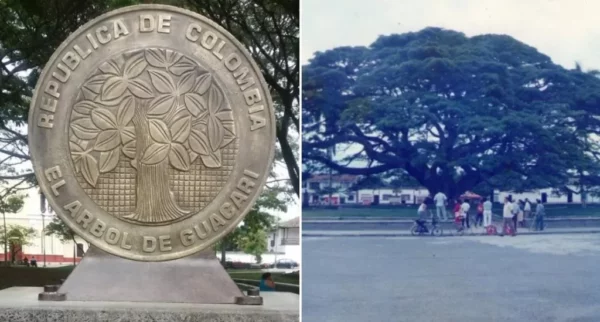
But the tree this article is about is different. It’s not another iconic Samanea saman, even though it really looks like it. No, it’s actually a Ficus, commonly known as fig tree – the popular ornamental plant you will find in gardens and homes all around the globe. And it has grown huge.
Regarded as Columbia’s largest tree, the gigantic fig is so huge, in fact, that from a distance you could mistake it for a hill. Indeed, as you approach it, you get the sensation of being dwarfed until you feel really tiny. That’s just natural, though, as this giant is allegedly 30 meters high and 75 meters in diameter (we couldn’t find decisive proof but the images seem to underline this.)
The tree has an incredibly beautiful foliage that looks like a green mountain, with branches that kiss the ground as if paying homage to Mother Earth. And not only do they kiss the earth, but they function as supports that the tree itself has generated, from aerial roots coming from the branches furthest from the trunk.
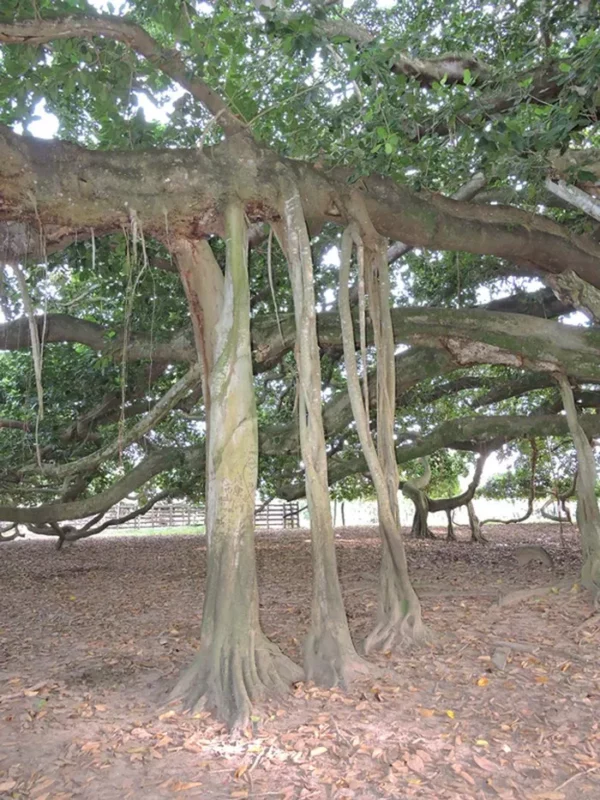
A wonderful sight indeed. Under this colossal tree, one has the sensation of being in the basement of a great building, with many columns that support the giant mass, Viajar en Verano reports. Some people in Latin America call it ‘The Tree That Walks”, because of its ‘feet’ with which it ensures its expansion. Indeed, the pillars it has grown are like limbs through which it advances to cover a larger area with its branches to receive the sun’s rays more directly or find more fertile land to feed on.
Even more interestingly, the Tree of San Marcos is not a tree. It’s several trees.
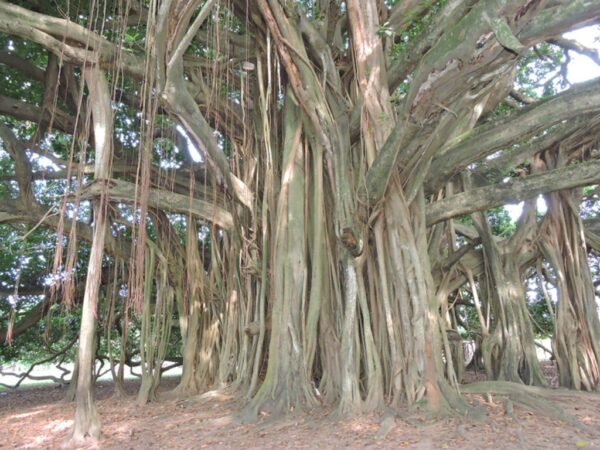
Historian Raúl Ospino Rangel gives a splandid description of how the green mass was formed.
It all started when in 1964 the owner of the Alejandría farm wanted to protect a yellow cedar tree that he had planted. They placed six fig tree rods around the sapling to prevent the cattle from damaging the young cedar.
But the opposite happened: instead of giving security to the cedar tree, the fig tree struts sprouted buds and then branches, which eventually ended up absorbing and devouring the yellow ceda
So the ‘Giant Fig of San Marcos’ is not just one, but six different plants that were joined and strengthened by aerial roots with which they formed supports on the ground.
If you ever happen to travel to the Atlantic coast of Colombia, be sure to visit San Marcos and let yourself be embraced by the shadowy extremities of ‘The Most Beautiful Tree in Colombia’. You will definitely see it from afar – about three kilometers before entering the Alejandría farm, you can get the first glimpse of the gigantic ‘green mountain’.
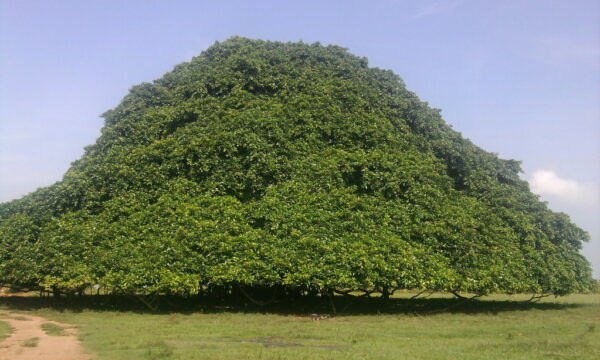
Protected by the branches of this tree, one feels small, but also enriched by its powerful energy. Let’s hope it will stand for a long time to come.

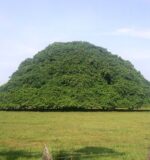
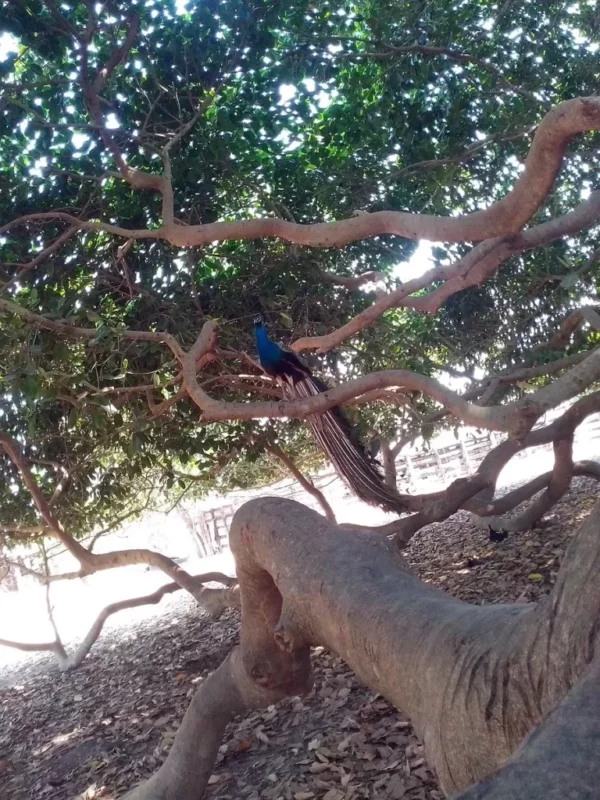



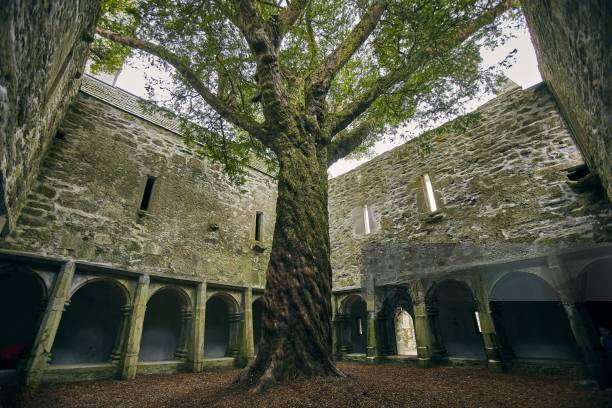


 Photographer Finds Locations Of 1960s Postcards To See How They Look Today, And The Difference Is Unbelievable
Photographer Finds Locations Of 1960s Postcards To See How They Look Today, And The Difference Is Unbelievable  Hij zet 3 IKEA kastjes tegen elkaar aan en maakt dit voor zijn vrouw…Wat een gaaf resultaat!!
Hij zet 3 IKEA kastjes tegen elkaar aan en maakt dit voor zijn vrouw…Wat een gaaf resultaat!!  Scientists Discover 512-Year-Old Shark, Which Would Be The Oldest Living Vertebrate On The Planet
Scientists Discover 512-Year-Old Shark, Which Would Be The Oldest Living Vertebrate On The Planet  Hus til salg er kun 22 kvadratmeter – men vent til du ser det indvendigt
Hus til salg er kun 22 kvadratmeter – men vent til du ser det indvendigt  Superknepet – så blir snuskiga ugnsformen som ny igen!
Superknepet – så blir snuskiga ugnsformen som ny igen!  Meteorite That Recently Fell in Somalia Turns Out to Contain Two Minerals Never Before Seen on Earth
Meteorite That Recently Fell in Somalia Turns Out to Contain Two Minerals Never Before Seen on Earth  Nearly Frozen Waves Captured On Camera By Nantucket Photographer
Nearly Frozen Waves Captured On Camera By Nantucket Photographer  It’s Official: Astronomers Have Discovered another Earth
It’s Official: Astronomers Have Discovered another Earth 